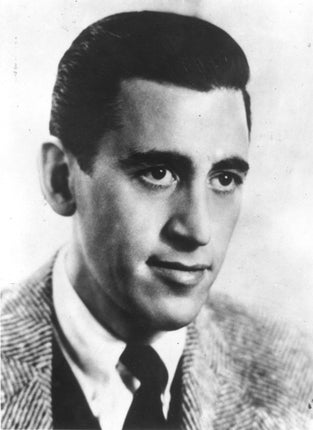Terence Blacker: The writer versus housework

A rare literary treasure has just become available on eBay. From the pen of the great American author JD Salinger, who died last year and who famously gave up writing for the world in the 1950s, comes a note to his maid, Mary. It could be yours for $50,000. Dated 12 March 1989, the message reads: "Dear Mary – Please make sure all the errands are done before you go on vacation, as I do not want to be bothered with insignificant things. Thank you. JD Salinger."
The note may seem to be something of an insignificant thing itself but, for students of the celebrity recluse, there are points of interest. It has been written on rather poncy notepaper, decorated by the great man's initial. It is the kind of carefully designed personal logo which a self-made man with delusions of taste – Jeffrey Archer, say, or Julian Fellowes – might have engraved on his gold cufflinks. The sign-off is oddly formal, too. There is surely something a touch absurd about a man who takes himself so seriously that he is on parade even when writing a note to the home help.
When it came to the cost of being well-known, Salinger was ahead of the game. Fifty years ago, he sensed that the more the world knew of him, the less there would be for writing. He was good on authorial vanity: "a confessional passage has probably never been written that didn't stink a little bit of the writer's pride in having given up his pride", he wrote in The Catcher in the Rye.
Eventually, though, he took artistic purity to its logical extreme and regarded publication itself as some sort of compromise. The significant things for which he was saving himself did not include writing for readers. The idea that a serious person should set himself (and, much more rarely, herself) above everyday domestic duties is popular with the more self-important authors. They live, uncontaminated by contact with a drying-up cloth, a pile of dirty washing. They quote the story of Dickens never accepting social invitations for fear that it might interrupt the flow of his writing. What a nonsense it is. Bruce Chatwin, according to his biographer, was never known to have taken his plate to the sink after a meal. Martin Amis used to boast that, when a brown envelope addressed to him arrived, he would hand it – with a fastidious shudder, one imagines – to his wife.
Of course, life would be easier without having to do the washing-up or reading letters from accountants but, down here among the grown-ups, it is accepted that these things need to be done. Would In Patagonia have been a lesser work if its author's delicate fingers had just now and then reached for the Fairy Liquid? Would Money have lost its acerbic brilliance if the man writing it had dared to deal with money? Of course not. It is in apparently insignificant things where significance can be found. A person who believes he is too elevated to deal with daily domestic stuff is likely to have a certain coldness; a distance, when it comes to his writing. He is handling life with tongs.
Politicians have begun to understand that the public no longer expect their leaders to be aloof, unworldly types like Edward Heath or Keith Joseph. The Prime Minister and his deputy sometimes seem to compete as to which of them has changed more nappies. Unusually, those who create for a living should follow their example. Ordinariness is not always such a terrible thing.
i@independent.co.uk
Join our commenting forum
Join thought-provoking conversations, follow other Independent readers and see their replies
Comments
Bookmark popover
Removed from bookmarks